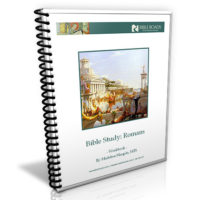One way to celebrate the resurrection of Christ Jesus is to look at the transforming effect Jesus’ post-resurrection appearance made on a Pharisee, Saul. Because of his Damascus road post-resurrection encounter, Paul considered himself an apostle, as chosen as the original twelve. In his most autobiographical letter, Paul writes the Galatians:
11 For I want you to know, brothers and sisters, that the gospel that was proclaimed by me is not of human origin; 12 for I did not receive it from a human source, nor was I taught it, but I received it through a revelation of Jesus Christ (Gal. 1:11,12).
Luke, the physician (the Gentile writer of the Gospel of Luke and the book of Acts) traveled with Paul. What stories Paul must have conveyed of his own conversion to this new Christian convert! Luke would write some thirty years after Paul’s execution, describing that Damascus road encounter, of Paul’s effort to identify that transforming voice and presence:
5 … Who are you, Lord?” The reply came, “I am Jesus, whom you are persecuting. (Acts 9:5)
I was thinking about this transforming experience for Paul when asked recently to write a paper for a national Christian organization on “Paul’s Theology and Mass Incarceration.” The United States harbors 25% of the world’s prison population but represents only 5% of that population, an astounding 2.3 million Americans behind bars–a 790% increase in just two decades.* Because of Paul’s multiple prison confinements, it makes sense to consider what lessons the apostle can teach about mass incarceration today. Paul’s example actually speaks to all of us–whether physically or mentally incarcerated in bars of self-condemnation, regret, even self-loathing.
Wherever he was, behind bars or preaching and healing openly, Paul companioned with Christ and that brought him joy. It was this joy he would encourage the new converts to discover whether in captivity or not. Writing to his supporters in Philippi, themselves experiencing persecution, Paul proclaims:
3 I thank my God every time I remember you, 4 constantly praying with joy in every one of my prayers for all of you (Phil. 1:3,4).
And what was such joy based on, but the palpable and sustaining love of Christ. As Paul wrote the church in Rome:
35 Who will separate us from the love of Christ? Will hardship, or distress, or persecution, or famine, or nakedness, or peril, or sword? (Rom. 8:35)
The joy from companioning with Christ, in both humility and boldness, sustained Paul and kept him focused on sharing the Gospel message.
20 It is my eager expectation and hope that I will not be put to shame in any way, but that by my speaking with all boldness, Christ will be exalted now as always in my body, whether by life or by death (Phil. 1:20).
This is the Easter message we celebrate today: Christ always with us, wherever we find ourselves, in whatever situation. The risen Christ, the living, palpitating presence of God’s love, makes us victors, never victims, and who proved this better than the remarkable Paul. “He is risen”!
* “The Growth of Incarceration in the United States: Exploring Causes and Consequences (2014)”, study.




